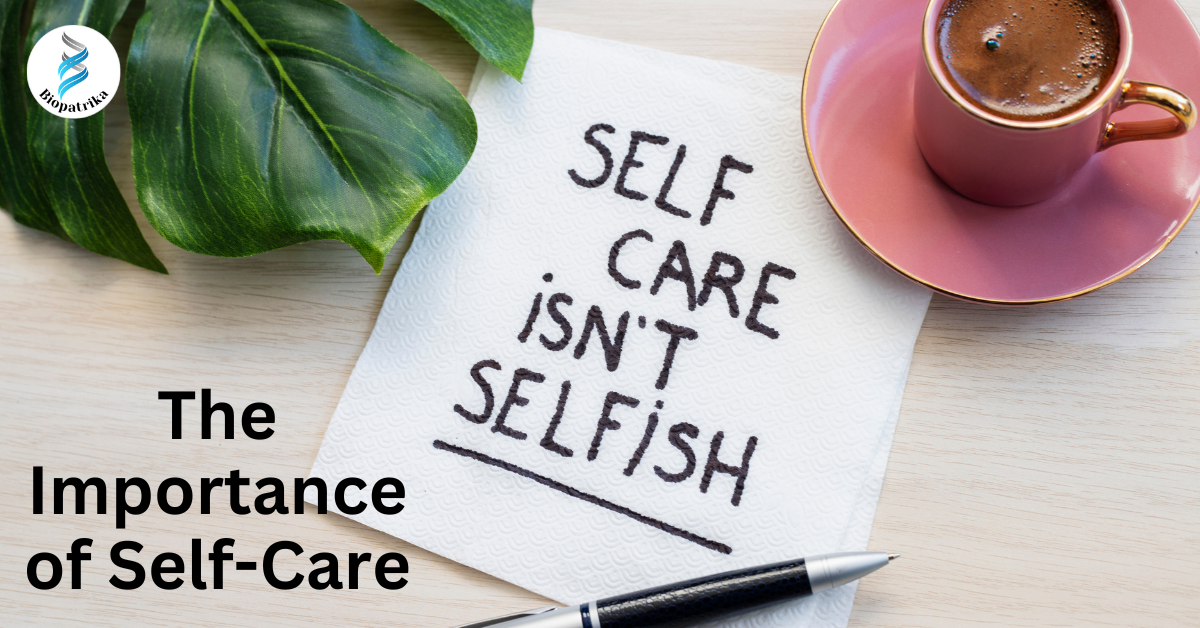In our modern, fast-paced world, it’s easy to get caught in a cycle of constant activity — working, managing responsibilities, and juggling daily challenges without ever truly pausing. While this kind of hustle might seem productive, it often leads to mental exhaustion, stress, and emotional burnout. This is where self-care becomes essential.
Self-care isn’t a luxury; it’s a necessity for maintaining mental clarity and emotional balance. It’s about making deliberate choices that nurture your mind, body, and spirit, allowing you to function at your best. Whether you’re a student, a professional, or a parent, understanding the role of self-care in maintaining mental health can help you live a calmer, more focused, and fulfilling life.
1. Understanding Self-Care and Its Connection to Mental Health
Self-care is more than pampering yourself — it’s a holistic practice that supports your physical, emotional, and mental well-being. It includes everything from eating nutritious meals and getting enough sleep to setting boundaries and taking breaks when you need them.
When you neglect self-care, your mind becomes cluttered and overwhelmed, leading to decreased focus, anxiety, and irritability. But when you prioritize your well-being, you give your brain the rest and recovery it needs to stay sharp and resilient.
Self-care essentially acts as a mental reset button, helping you regain control over your thoughts and emotions.
2. Why Mental Clarity Depends on Self-Care
Mental clarity refers to having a clear, focused, and calm state of mind. It allows you to think logically, make better decisions, and handle stress with ease. However, when you’re mentally fatigued, your ability to concentrate and problem-solve diminishes.
Self-care helps maintain mental clarity by reducing unnecessary mental noise. Activities like journaling, meditation, or even taking a walk outdoors can help organize your thoughts and calm your nervous system. These practices improve brain function, allowing you to process information more efficiently and stay present in the moment.
A clear mind doesn’t happen by chance — it’s cultivated through consistent self-care habits that support mental recovery and relaxation.
3. Self-Care as a Tool for Emotional Balance
Emotional balance means being able to experience and manage your feelings in a healthy way. When you ignore your emotional needs, stress and frustration can quickly build up. Over time, this leads to burnout, anxiety, or even depression.
Through self-care, you create emotional space to recharge. Taking quiet moments for yourself, practicing gratitude, or engaging in hobbies helps regulate your emotions and promote inner peace.
Emotional balance isn’t about being happy all the time — it’s about staying steady even when life feels chaotic. Self-care provides the foundation for that stability, helping you respond calmly rather than react impulsively.
4. Practical Self-Care Practices to Improve Mental Clarity
Building a self-care routine doesn’t require huge changes — small, consistent actions can make a big difference. Here are some effective ways to enhance mental clarity and balance:
a. Prioritize Rest and Sleep
Quality sleep is the cornerstone of mental health. When you’re sleep-deprived, your brain struggles to focus and regulate emotions. Aim for 7–8 hours of uninterrupted rest each night. Establishing a bedtime routine — such as dimming lights, avoiding screens, and reading — signals your body to unwind.
b. Practice Mindfulness and Meditation
Mindfulness helps you stay grounded in the present. Just 10 minutes of mindful breathing or meditation daily can lower stress hormones and clear mental clutter. It’s a simple yet powerful way to center your mind.
c. Move Your Body
Exercise doesn’t just strengthen your body — it boosts brain function and releases endorphins, the “feel-good” hormones. Whether it’s yoga, walking, or dancing, movement helps relieve mental fatigue and enhance focus.
d. Nourish with Balanced Nutrition
Your brain needs proper fuel to function efficiently. Consuming nutrient-rich foods — such as fruits, vegetables, whole grains, and healthy fats — supports concentration and energy levels. Avoiding excessive caffeine and processed foods also helps maintain a stable mood.
e. Set Boundaries and Unplug
Mental clutter often comes from overstimulation. Set boundaries with work, relationships, and technology. Take digital breaks, mute unnecessary notifications, and allow yourself moments of silence each day.
These small actions can transform how you feel and think over time, leading to greater balance and mental strength.
5. The Science Behind Self-Care and Mental Balance
Scientific studies consistently show that regular self-care practices can lower cortisol levels (the stress hormone), improve memory, and enhance overall brain function. Activities like journaling or meditation stimulate the prefrontal cortex — the part of the brain responsible for focus, planning, and emotional regulation.
Moreover, self-care habits encourage neuroplasticity — the brain’s ability to form new connections. This means that by regularly engaging in self-care, you’re training your brain to respond more calmly to stress, improving both mental clarity and emotional balance in the long term.
6. Recognizing When You Need More Self-Care
Sometimes, the signs that you need self-care are subtle. You may feel more irritable, forgetful, or unmotivated than usual. Physically, you might experience headaches, fatigue, or trouble sleeping.
These are red flags that your body and mind are asking for a break. Ignoring them can lead to burnout or emotional overwhelm. The best way to prevent that is to schedule self-care as part of your daily life, not as an afterthought. Think of it as a non-negotiable investment in your health — the same way you’d prioritize work meetings or doctor appointments.
7. Self-Care Myths That Hold People Back
Many people avoid self-care because of common misconceptions:
-
“I don’t have time.” In reality, self-care doesn’t require hours. Even a five-minute breathing session counts.
-
“It’s selfish.” Taking care of yourself allows you to show up better for others. It’s an act of self-respect, not selfishness.
-
“It’s expensive.” The best self-care activities — like rest, walking, or journaling — are completely free.
Letting go of these myths allows you to embrace self-care as a vital, accessible part of everyday life.
Frequently Asked Questions (FAQs)
1. What are the mental benefits of self-care?
Self-care reduces stress, improves focus, enhances mood, and supports emotional regulation. It allows your brain to recharge, leading to clearer thinking and better decision-making.
2. How often should I practice self-care?
Ideally, every day. Even small, consistent acts — such as mindful breathing or taking a short walk — can have long-term benefits when practiced regularly.
3. What’s the difference between self-care and relaxation?
Relaxation is a part of self-care, but self-care also includes habits that promote overall well-being, such as eating well, exercising, and maintaining healthy boundaries.
4. Can lack of self-care affect mental health?
Yes. Neglecting self-care can lead to stress, anxiety, burnout, and reduced cognitive performance. Over time, it can also contribute to depression or chronic fatigue.
5. How can I start a simple self-care routine?
Begin with one small habit that feels manageable — such as journaling before bed or taking a daily walk. Build on that gradually as it becomes part of your routine.
Conclusion
Self-care isn’t just about relaxation — it’s a powerful tool for achieving mental clarity and emotional balance. When you intentionally take time to rest, reflect, and recharge, you strengthen your mind’s ability to focus, handle stress, and stay emotionally grounded.
In a world that constantly demands your attention, caring for yourself is the most responsible and rewarding thing you can do. Start small, stay consistent, and remember: a calm, clear mind is the foundation for a healthy and fulfilling life.




